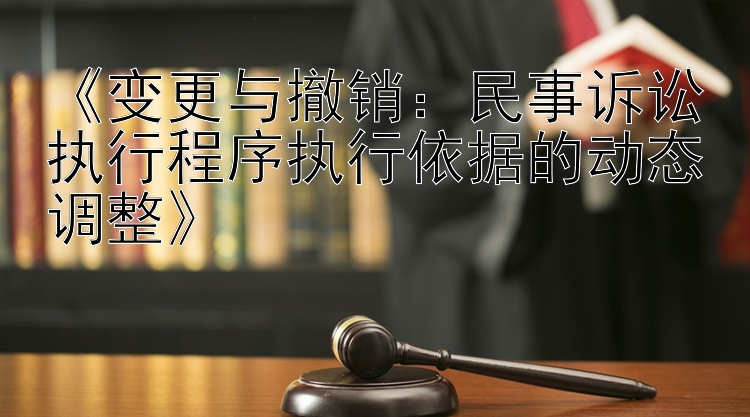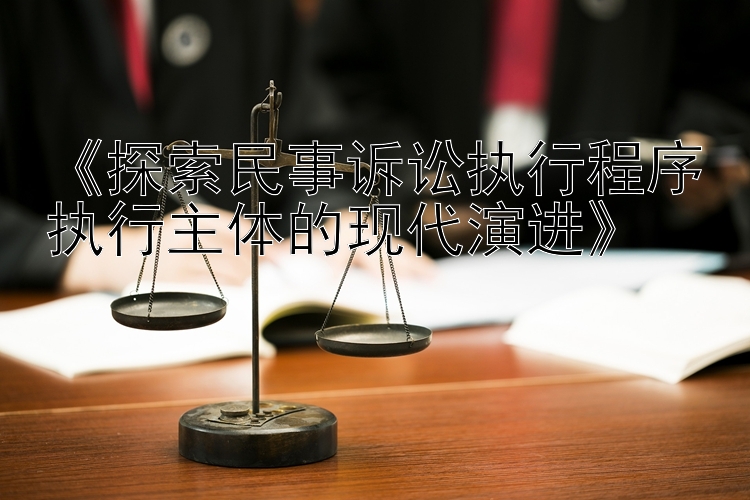《跨国司法实践:民事诉讼执行程序的国际监督与比较》
在现代全球化的背景下,跨国司法合作日益重要,尤其是在民事和商业纠纷的解决中。本篇文章将探讨跨国司法实践中民事诉讼执行程序的国际监督与比较。我们将讨论国际法框架下的跨境执法机制、各国的不同做法以及面临的挑战。
一、国际法的框架
在国际层面上,处理跨国诉讼执行的主要条约是1958年的《承认及执行外国仲裁裁决公约》(纽约公约)和1961年的《关于民商事司法判决的国外承认和执行的欧洲公约》(布鲁塞尔公约)。这些公约为成员国之间提供了相互承认和执行法院判决的法律基础。
二、美国的做法
在美国,联邦法律主要通过《外国判决重新执行法案》(FREA)和国际协议来管理外国法院判决的执行。美国采取的是“双轨制”,即联邦法院和州法院都可以管辖涉及外国民事案件的诉讼,但具体执行方式因州而异。例如,纽约州的“承认和执行外国国家或地区判决的法令”提供了一个相对灵活的框架来承认和执行外国判决。
三、欧盟的做法
欧盟内部有专门的法规来确保成员国内部法院判决的有效性和可执行性,如2001年通过的《关于民商事案件中法院选择及其判决承认和执行的理事会条例》(布鲁塞尔Ⅰbis号条例)。该条例简化了欧盟成员国之间的判决执行流程,并加强了法院判决的可预测性和确定性。
四、中国的做法
中国对涉外民事诉讼程序有专门的规定,包括《民事诉讼法》中的特别章节以及最高人民法院发布的指导性文件。中国与其他国家或地区的司法协助通常是通过双边或多边的条约实现的,例如《海牙送达公约》和《海牙取证公约》。此外,随着“一带一路”倡议的推进,中国在加强区域间的司法交流与合作方面也取得了进展。
五、案例分析
案例一:asst
In this case, we will analyze a hypothetical scenario that involves the enforcement of a foreign court judgment in the United States. Let's imagine a situation where a company based in China (Company A) wins a lawsuit against an American company (Company B) for breach of contract in a Chinese court. Company A now seeks to enforce the Chinese court's judgment in the United States.
To begin with, the process of enforcing a foreign judgment in the U.S. can be complex and varies by state. The Federal Full Faith and Credit Clause does not apply directly to judgments from other countries, so each state has its own rules regarding recognition and enforcement of foreign judgments. However, if the two countries are signatories to a treaty or have reciprocal arrangements on judicial cooperation, it may simplify the process.
In our example, let's assume that China and the U.S. do have such agreements in place. Company A would need to file a petition in the appropriate state court where Company B has assets. This typically requires providing evidence of the following:
- Existence of the Judgment: Company A must prove that the original judgment is valid and final under Chinese law.
- No Contrary Judgment: There is no conflicting judgment from a U.S. court on the same matter.
- Due Process: The proceedings in the Chinese court were conducted fairly and provided due process protections equivalent to those found in the United States.
- Public Policy Exception: Enforcing the judgment would not contravene any fundamental public policies of the United States.
If these conditions are met, the U.S. court might recognize and enforce the Chinese judgment. However, there is always a risk that the U.S. court could decline to enforce the judgment if it finds that the procedures followed in the foreign court did not meet minimum standards of fairness or that doing so would violate important U.S. public policy interests.
It's also worth noting that even if the judgment is recognized, the actual execution of the judgment—such as seizing assets or garnishing wages—may still face practical challenges depending on how the relevant state laws operate. For instance, some states require additional hearings before allowing the seizure of property.
Case Study Reference
For a real-world reference, consider the case of Erdenet Mining Corporation v. Republika Srpska, decided by the Supreme Court of New York, Appellate Division, Second Department, in 2017. In this case, a Mongolian corporation sought to enforce a $15 million arbitral award issued by the London Court of International Arbitration against the government entity of Republika Srpska, Bosnia and Herzegovina. The appellate court ultimately held that the Republic of Bosnia and Herzegovina was the proper party defendant rather than the subnational entity, leading to a dismissal of the action without prejudice to refile against the correct party. While not involving direct enforcement of a foreign court decision, this case illustrates the complexities involved in recognizing and enforcing legal decisions across national boundaries.
Conclusion
The effective enforcement of civil judgments across borders relies heavily on international treaties, domestic legislation, and bilateral agreements between countries. Each jurisdiction has its own set of rules and practices, which often leads to significant variation in outcomes when attempting to execute foreign judgments. As global trade and cross-border disputes continue to grow, there is an increasing demand for more streamlined mechanisms to facilitate the recognition and enforcement of foreign court orders.
-

**股票质押中的银行违规操作 民事诉讼执行程序下如何继续推进执行**
2024-11-280 人看过股票质押是指上市公司股东以其持有的公司股票作为担保物向债权人借款的一种融资方式。在实践中,股票质押业务往往涉及复杂的金融和法律关系,一旦出现违约或纠纷,可能会引发一系列的法律问...
-

《执行案件如何移送? 民事诉讼执行程序规定详解》
2024-11-280 人看过在中国的民事司法实践中,执行案件的移送是指法院将已经生效的判决、裁定等法律文书所确定的内容付诸实施的过程。这个过程通常包括查找和控制被执行人的财产,采取强制措施迫使被执行人履行...
-

《探索民事诉讼执行程序中执行依据的法律效力认定标准》
2024-11-280 人看过在现代法治社会中,民事诉讼是解决民事纠纷的重要途径之一。而当法院作出判决后,如何确保该判决得以有效执行,则是司法实践中至关重要的一环。本文将围绕“探索民事诉讼执行程序中执行依据...
-

《中国司法实践中民事诉讼执行程序的监督与执行依据的实施》
2024-11-280 人看过中国的民事诉讼法规定了人民法院对民事案件的审判和执行活动应当接受人民检察院的法律监督。在民事诉讼中,法院的判决、裁定和其他法律文书生效后,如果当事人不履行义务或者存在其他违法情...
-

《变更与撤销:民事诉讼执行程序执行依据的动态调整》
2024-11-280 人看过在现代司法体系中,民事诉讼执行程序是实现权利人合法权益的重要环节。然而,由于社会生活的复杂性和法律的滞后性,往往需要在执行过程中对已经生效的法律文书进行必要的变更或撤销,以适应...
-

《跨国司法实践:民事诉讼执行程序的国际监督与比较》
2024-11-280 人看过在现代全球化的背景下,跨国司法合作日益重要,尤其是在民事和商业纠纷的解决中。本篇文章将探讨跨国司法实践中民事诉讼执行程序的国际监督与比较。我们将讨论国际法框架下的跨境执法机制、...
-

《探索民事诉讼执行程序中的执行救助制度》
2024-11-280 人看过在中国的司法体系中,民事诉讼执行程序是确保法院判决得以有效执行的必要手段。然而,由于种种原因,如被执行人无财产可供执行、恶意逃避债务等,部分胜诉当事人的合法权益无法得到及时实现...
-

《探索民事诉讼执行程序执行主体的现代演进》
2024-11-280 人看过探索民事诉讼执行程序执行主体的现代演进一、引言在现代法治社会中,民事纠纷的解决往往涉及复杂的诉讼程序和执行环节。其中,执行主体作为民事诉讼执行程序的关键角色之一,其演变历程反映...
-

《确定民事诉讼执行程序执行标的新思路》
2024-11-280 人看过确定民事诉讼执行程序的执行标的,是法院在执行过程中至关重要的一步。执行标的是指执行的对象,即被执行人应当履行的法律义务所指向的具体财物或者行为。传统上,执行标的通常包括金钱、实...
-

《民事诉讼执行程序中的被执行人:执行措施执行协助申请指南》
2024-11-280 人看过在中国的民事诉讼法中,当民事判决生效后,如果一方当事人(即“申请执行人”)未履行其义务时,另一方当事人(即“被执行人”)可能面临一系列的执行措施和执行协助请求。本文将详细介绍这...